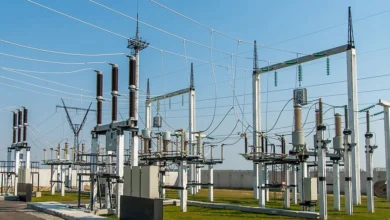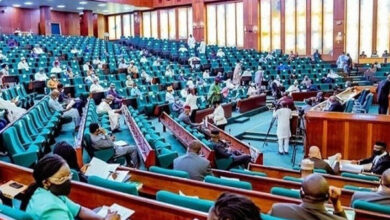Act as hygiene ambassadors in your communities |

The Lagos State Governor, Babajide Sanwo-Olu on Tuesday urged informal food /water vendors and waste workers to act as hygiene ambassadors within their communities by sensitizing residents about cholera prevention while advocating for improved sanitation infrastructure and policy enforcement.
The Governor spoke through the Commissioner for the Environment and Water Resources Tokunbo Wahab during the inauguration ceremony and inception meeting of the UNIDO – LASEPA Project, titled “Emergency Capacity Building of the Informal Food / Water Vendors and waste workers in flood affected areas of Lagos to Combat Cholera Outbreaks” held at the Radisson Blu Hotel, Victoria Island, Lagos.
He said in Nigeria, cholera remains a recurrent health crisis, with outbreaks occurring almost annually, saying the situation reflects broader global challenges such as climate change, displacement due to conflicts, and rapid urbanization without adequate infrastructure development.
He recalled that in 2021 alone, Nigeria recorded over 100,000 suspected cholera cases and more than 3,500 deaths across 32 states, stressing that it is a stark reminder of the urgency required to address the issue.
He said cholera is an acute diarrheal disease caused by the bacterium Vibrio cholerae, primarily spread through contaminated water / food and poses a severe threat to global health, particularly in regions with inadequate sanitation, overcrowded living conditions as well as limited access to clean water.
He said this initiative was a timely and critical intervention aimed at strengthening the emergency capacity of informal food and water vendors, as well as waste workers, in flood-affected areas of the state.
He said these individuals are frontline providers of essential services, yet they remain disproportionately vulnerable to cholera outbreaks due to their constant exposure to contaminated environments.
He added that the initiative would also align with broader urban planning efforts by advocating for improved sanitation infrastructure across the state, which include drainage system upgrades in order to mitigate future flooding risks.
As frontline providers of food, water, and waste management services, informal vendors and waste workers play a vital role in public health.
However, their exposure to hazardous conditions significantly increases their risk of contracting and spreading diseases like cholera.
He stressed that “preventing future outbreaks requires equipping them with the necessary knowledge, tools, and resources to maintain hygiene and safety standards in their operations.”
He said it is on this premise that the state government through LASEPA sought technical support from UNIDO to safeguard environmental quality while addressing social and economic needs.
He stated that the partnership aims to enhance emergency response capabilities for managing infectious disease outbreaks such as cholera, capacity building for informal food/water vendors as well as waste workers who play critical roles in public health and sanitation.
He explained that in order to ensure measurable impact, this initiative would focus on educating informal vendors and waste workers on cholera transmission pathways, symptoms, prevention strategies, and treatment options.
He added that the focus would also include the introduction of practical hygiene techniques which include proper handwashing methods, safe food handling practices, and effective water purification methods tailored to their daily operations.
He said it would also promote best practices for waste management, particularly during flooding which covers safe collection, segregation, disposal technique and addressing clogged drainage systems that exacerbate flooding risks.
He added that it would provide essential resources which include water purification kits, disinfectants, protective gear (such as gloves), hygiene materials (such as soap), and first-aid supplies to minimize exposure to contaminated environments.
He stressed that it would also foster collaboration between government agencies, health officials, community leaders, private organizations, and international partners to build resilience against future health crises while addressing environmental challenges.
He stressed that also a continuous monitoring and evaluation will be conducted using measurable indicators such as improved hygiene practices among participants or reductions in reported cholera cases within targeted communities.
According to him, the Lagos State Government remains steadfastly committed to safeguarding public health through robust environmental protection policies and strategic partnerships with MDAs (Ministries Departments Agencies), international organizations like UNIDO, private sector players, NGOs—and most importantly—the people of Lagos.
“As we embark on this journey together, let us remember that combating cholera is not just a government responsibility—it requires the active involvement of every stakeholder here today: policymakers; community leaders; private sector representatives; NGOs; international organizations; informal vendors; waste workers; and citizens alike,” he said.
Post Views: 10






